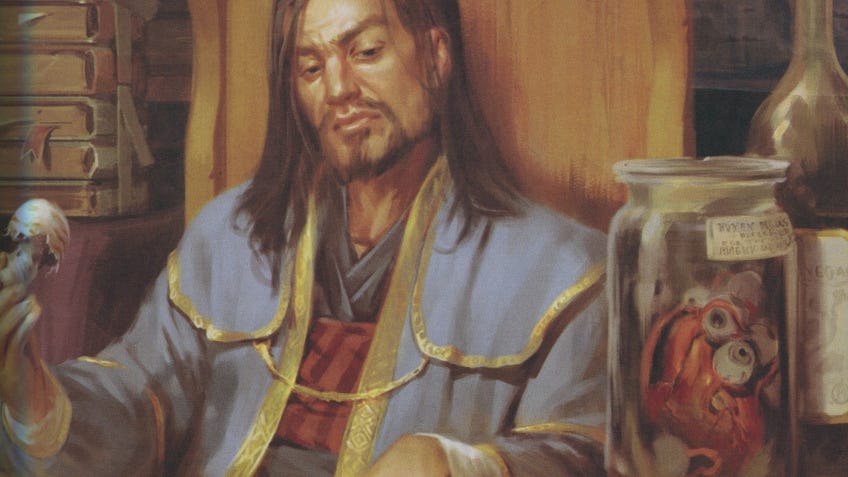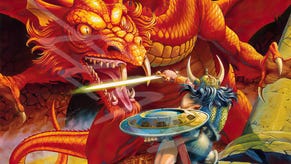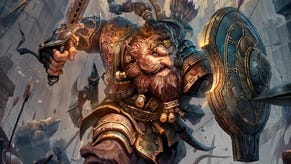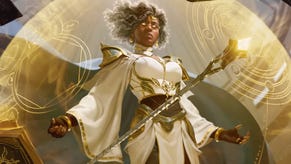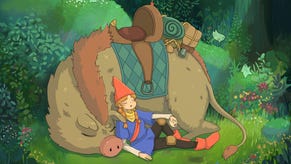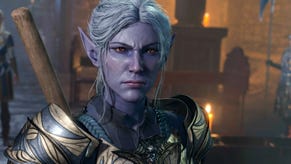Dungeons & Dragons 5E key terms explained
Learning the lingo.
Dungeons & Dragons is full of confusing terminology that likely won’t make a lick of sense unless you’ve actually played the fantasy roleplaying game. In lieu of this, Dicebreaker has created a glossary containing (most) of the key terms you’ll encounter throughout your time reading these guides and, eventually, playing Dungeons & Dragons 5E.
This page should serve as a good reference point if you’re ever confused by Wizards of the Coast’s, at times, impenetrable rulebook jargon. Perhaps you've read our guide to how to pick your character class in Dungeons & Dragons 5E and want a refresher on terms or looked at our character creation tips and felt overwhelmed.
Plenty of the terms are applicable to other tabletop RPGs too, so consider it a good way to brush up on your roleplaying know-how in general whether D&D 5E is your game of choice or not.
Dungeons & Dragons Glossary of Terms
Ability checks: When a DM asks you to roll one of these to succeed on an action, you roll a d20 plus any ability modifiers or proficiencies related to the chosen check - e.g. roll adding your wisdom modifier when rolling a wisdom check.
Ability Scores: These are the base stats that make up your character, which then determine whether you can overcome challenges. You add your ability modifier to appropriate rolls when asked to.
Actions: In combat, players can usually perform one action per turn; which can include attacking, casting a spell, getting up from a fall, etc…
Advantage: When you can roll twice (or two dice), and take the higher result. This can be applied to attack rolls.
Area of Effect: When a spell or ability affects a select area, rather than a select person. Can appear in different shapes (cone, cube, cylinder, line, sphere), and often requires the spell-caster to position the area of effect to cover enemies whilst avoiding allies.
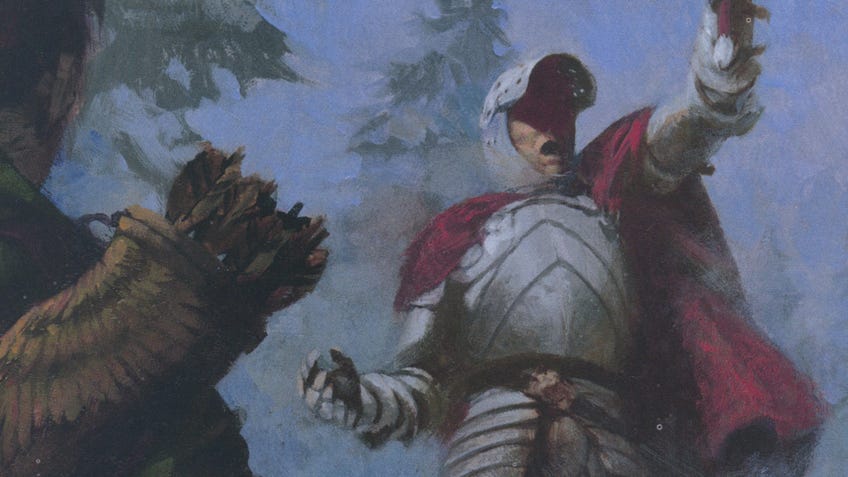
Armour Class: This is what opponents will need to beat in order to hit you, usually determined by the quality of armour you’re currently wearing and/or the shield you’re using.
Attack Roll: This is a roll that determines whether you successfully hit an opponent with your attack, and will usually involve a d20 plus your attack modifier. You can learn more about performing an attack roll in our guide to how to play Dungeon & Dragons 5E.
Attack of Opportunity: When a hostile character passes through a contested area, they have to take an attack of opportunity. This counts as a reaction.
Bonus Action: An additional action your character can perform during a round of combat, which, depending on your class and feats, can be a variety of things.
(Rolling a) Critical: This happens if you roll a 20, and, depending on your class and connected feats, will often result in additional damage or another positive effect. Either way, cool stuff happens.
Charisma: Using smiles and words (actions like persuasion and intimidation).
Combat Round: Wherein characters take turns to perform their actions, a single round of combat takes around 6 seconds.
Constitution: Using health (general actions, like trying not to throw up).
Concentration: If you’re attacked when trying to maintain a spell with concentration, you will need to roll to check to see if you can maintain that spell.
Components: Certain spells will require your character to either speak words (verbal), perform gestures (somatic), or produce an object to cast it (material). Some may even require all three of these.
D20: A twenty-sided die, commonly used for attack rolls and resolving other tests in Dungeons & Dragons.
Damage roll: This is what dice you roll if you successfully hit an opponent, which you will add a modifier to if your weapon carries one or you have a feat that enables this.
Dexterity: Using grace (actions like sneaking and acrobatics).
DM (Dungeon Master): This is the person who’ll be describing each scene, playing the NPCs you’ll encounter and asking you to roll.
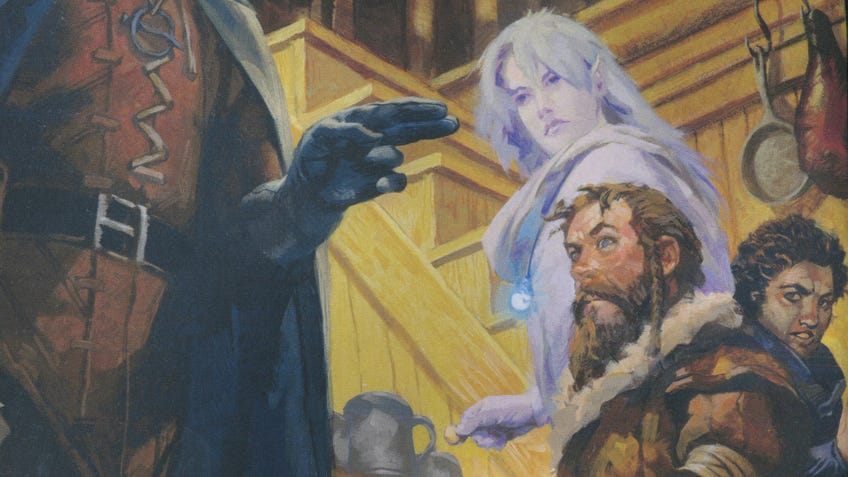
Feats (features): These are aspects that are often determined by your race and class (although not always), and will either add positive modifiers, allow you to cast certain spells or give you unique abilities (such as speaking a certain language or seeing in the dark).
Hit Die: Whenever you take a short rest, you can roll these dice to heal your character. They are replenished after a long rest.
Initiative: Determines turn order in combat, usually involves rolling a d20 and adding your dexterity modifier.
Intelligence: Using brain-power (actions like history and investigation). Find out how to generate your ability scores in our guide to how to create a Dungeons & Dragons 5E character.
Instantaneous: When a spell is cast straight away and cannot be dispelled.
Long Rest: At least eight hours of rest - heals up all players, replenishes hit dice and spell slots for all characters.
Modifier(s): A number that you add to your rolls, whether that be: ability checks, attack rolls, damage rolls, etc...
NPC (Non-Player Characters): These are the characters you’ll encounter during your adventure that aren’t controlled by a player; instead, they’ll be masterminded by the DM.
Passive Proficiencies: These are determined by your ability modifiers and proficiencies, and activate without rolling (10 + ability modifier + proficiency modifier).
PC (Player Character): These are the characters that are controlled by a specific player.
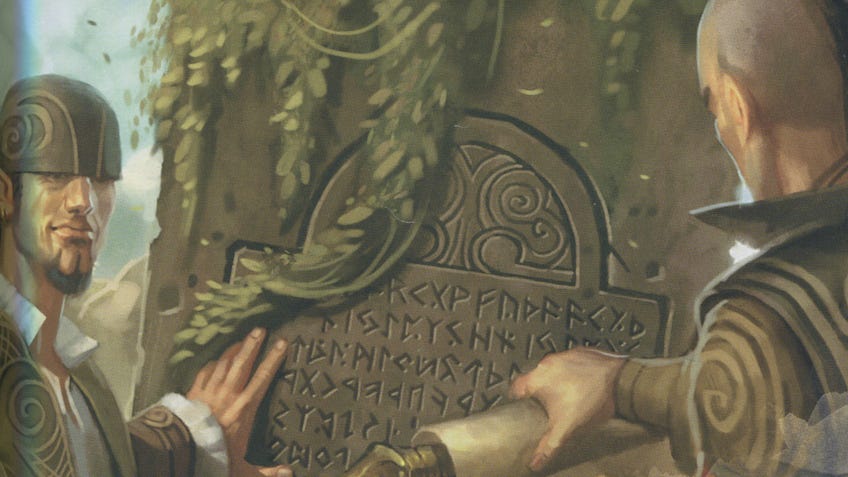
Proficiencies: The skills your character is good at, these will be added as a bonus to your ability checks (e.g. animal handling, history, arcana, etc…).
Range: How far your attack or spell can travel (e.g. 60 ft).
Reaction: When you act on another person’s go, often against an action made against you. You can do this once per combat round.
Saving Throws: A DM will ask you to roll these to react to something happening to you, these are usually to prevent a bad thing - such as needing to resist a charm spell or dodge a falling rock. You’ll add specific saving throw modifiers to these. Learn when you might make a saving throw in our guide to how to playing Dungeons & Dragons 5E.
Short Rest: At least an hour of rest, enables players to roll hit die and some classes to replenish spells slots.
Speed: How far your character can move each round. Five foot equals a single square on any D&D map or battlemap.
Spellcasting Ability: This is a modifier that can be added to certain spells, either to hit or to increase the effectiveness of the spell.
Spellcasting DC: This is a number that victims of certain spells will have to roll against to avoid the spells effects or taking full taking damage. It’s determined by the spell itself as well as the modifier produced by the character’s spellcasting DC (which is based on a certain ability score).
Spell Slots: How many times you can cast certain spells, these are replenished per long rest (except for certain classes).
Strength: Using muscles (actions like lifting and grappling).
Wisdom: Using common sense (actions like insight and survival).
Want to know more about Dungeons and Dragons 5E? You can find out how to play Dungeons & Dragons 5E in our guide, or how to make a Dungeons & Dragons 5E character in our other resources.
